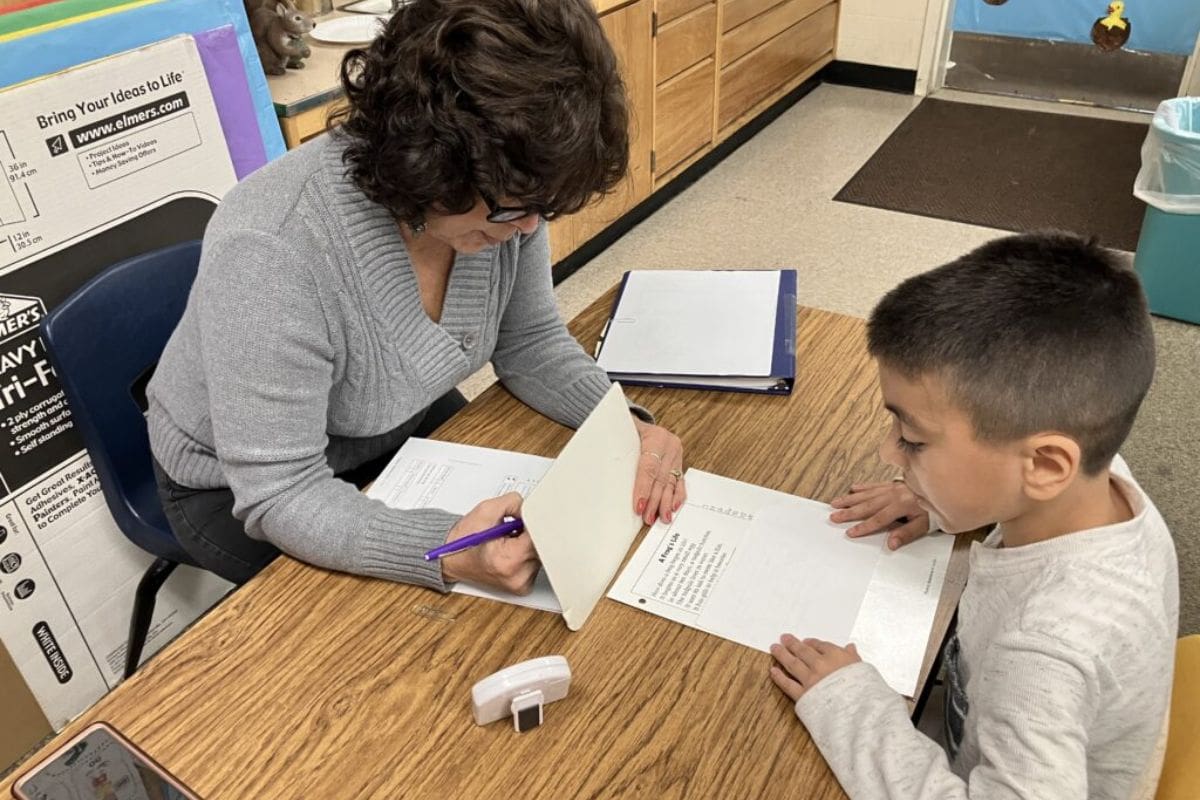Controversial Bill Sparks Opposition: The clash surrounding California’s Assembly Bill 2222 has unveiled a complex web of perspectives and concerns within the educational community, particularly among EL advocates. As advocacy organizations voice their opposition, the bill’s proponents stand firm in their belief that it will elevate literacy standards.
Assemblywoman Rubio’s role in mediating these divergent views underscores the need for a nuanced approach that balances practical implementation with the latest research in literacy instruction. The debate encapsulates broader questions about curriculum development and educational policy, promising a deeper exploration of the intricacies at play in this contentious issue.
Opposition to Assembly Bill 2222: Concerns Raised by Advocacy Organizations
The opposition to Assembly Bill 2222 by Californians Together and the California Association for Bilingual Education (CABE) stems from concerns regarding the potential adverse effects on English learners’ literacy instruction progress due to the mandated alignment with the ‘science of reading’.
These advocacy organizations fear that the bill’s focus on the ‘science of reading’ could lead to a one-size-fits-all approach that may not adequately address the unique needs of English learners. They argue that English learners require a more nuanced and comprehensive approach to literacy instruction, one that considers their bilingual and bicultural backgrounds.
Californians Together and CABE advocate for the full implementation of the English Language Arts/English Language Development Framework, which they believe offers a more holistic and effective way to support English learners in developing their literacy skills.
Supporters’ Perspective: Bill Strengthens Literacy Standards
Enhancing literacy standards through Assembly Bill 2222 is a pivotal step towards addressing the diverse needs of English learners and promoting a more robust foundation for their academic success.
Supporters of the bill, such as Decoding Dyslexia California, EdVoice, and Families in Schools, argue that it strengthens literacy standards by emphasizing tailored approaches for English learners, debunking assertions of a one-size-fits-all strategy.
They underscore the significance of explicit and systematic reading instruction that aligns with the science of reading, aiming to dispel any misunderstandings regarding the bill’s objectives.
By advocating for evidence-based practices and personalized support, proponents believe that Assembly Bill 2222 offers a framework that can enhance literacy outcomes for all students, particularly English learners who often face unique challenges in mastering reading skills.
This perspective underscores the bill’s potential to elevate educational standards and provide a more equitable learning experience for diverse student populations.
Assemblywoman Rubio’s Stance: Addressing Concerns and Emphasizing Research
Assemblywoman Blanca Rubio’s approach towards Assembly Bill 2222 involves addressing concerns raised by advocacy groups and emphasizing the importance of research in supporting English learners’ education.
Rubio recognizes the worries expressed by advocacy groups regarding English learners’ educational needs. She highlights the bill’s focus on enhancing oral and home language development for these students, essential for their overall academic progress.
Furthermore, Rubio stresses the critical role of teacher training in effectively catering to the diverse needs of English learners. By underlining her dedication to formulating legislation based on research and data, Rubio aims to ensure that policies align with best practices in English learner education.
Her stance reflects a commitment to leveraging evidence-based strategies to drive positive outcomes for English learners, emphasizing the significance of well-informed decision-making in shaping educational policies that cater to the unique requirements of this student population.
Debate Over Curriculum and Implementation: Balancing Literacy Skills
In navigating the debate over curriculum and implementation in English learner education, the focus lies on achieving a harmonious integration of literacy skills that encompasses comprehensive instructional strategies. Opponents of Assembly Bill 2222 express concerns about potential limitations in curriculum flexibility and implementation challenges. They argue against strict adherence to certain teaching models and emphasize the importance of a comprehensive approach to literacy instruction. While acknowledging the significance of foundational literacy skills, opponents highlight the need for nuanced strategies that incorporate vocabulary, syntax, and contextual learning to support English learners effectively. Discussions revolve around finding a balanced approach that promotes literacy while addressing the diverse needs of students.
| Pros | Cons |
|---|---|
| Comprehensive approach to literacy | Potential limitations in curriculum flexibility |
| Nuanced strategies for English learners | Implementation challenges |
| Integration of vocabulary, syntax, | Resistance to certain teaching models |
| and contextual learning | Emphasis on balanced literacy approaches |
ALSO READ: Federal Boost California Tribes Get Funds for Electricity Access
News in Brief
California’s Assembly Bill 2222 Ignites Debate Over Literacy Standards. As California’s Assembly Bill 2222 sparks heated discussions, advocates and proponents clash over its implications for English learners. Opposing voices from Californians Together and CABE express concerns about potential limitations and implementation challenges, advocating for a more flexible approach. Conversely, supporters argue that the bill strengthens literacy standards, emphasizing tailored strategies for English learners. Assemblywoman Blanca Rubio aims to address concerns while underscoring the importance of research-based policies. The debate centers on achieving a balanced curriculum that integrates foundational skills with nuanced approaches to support diverse student needs. As perspectives diverge, the bill’s fate remains uncertain amidst ongoing discourse over its impact on educational practices.



